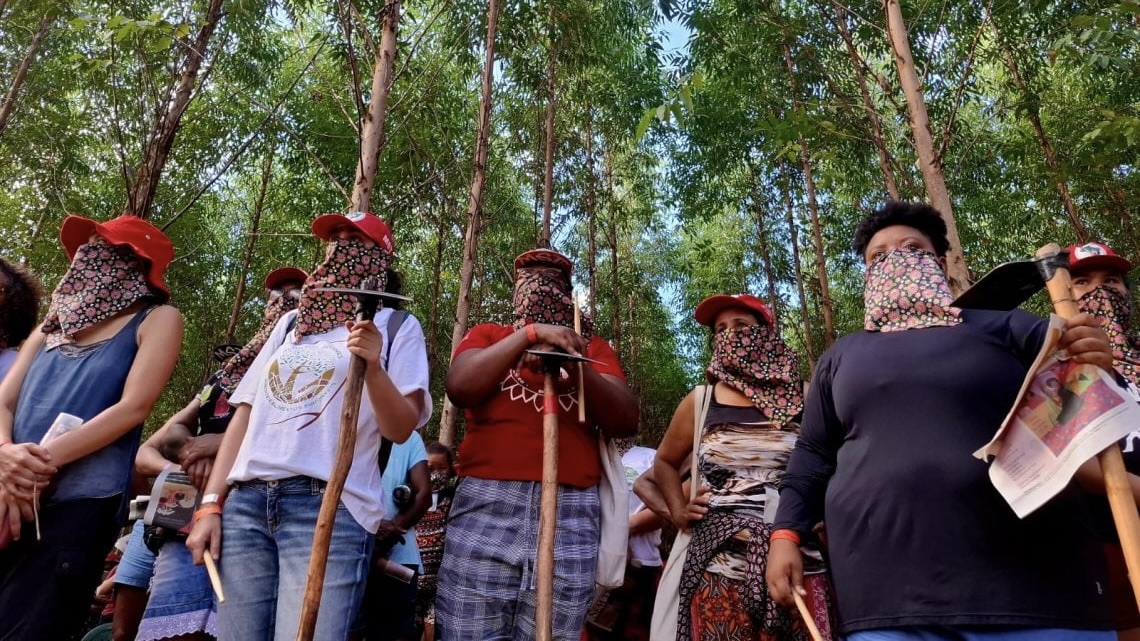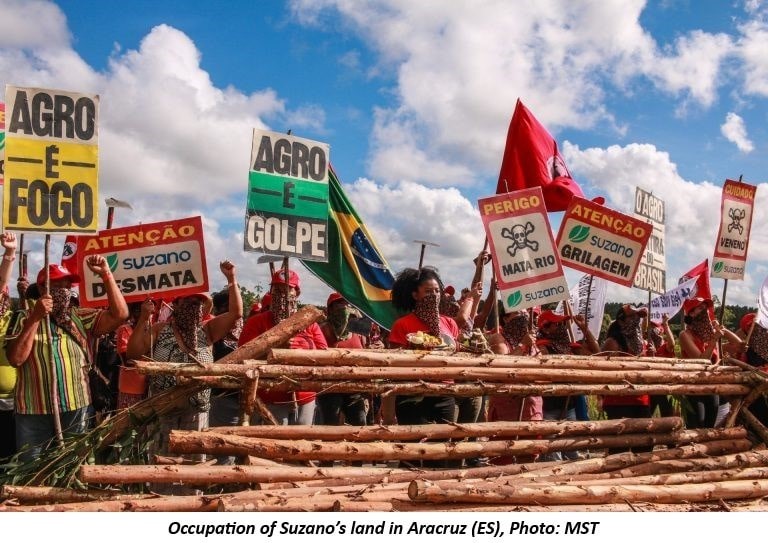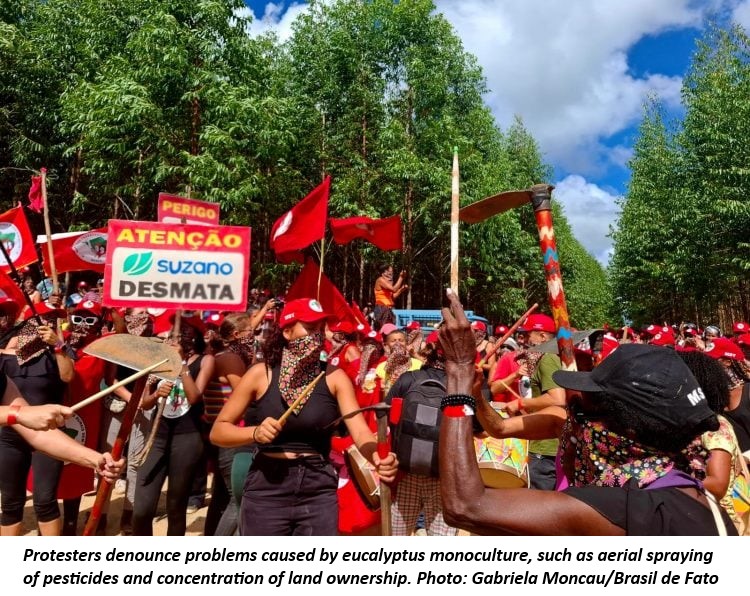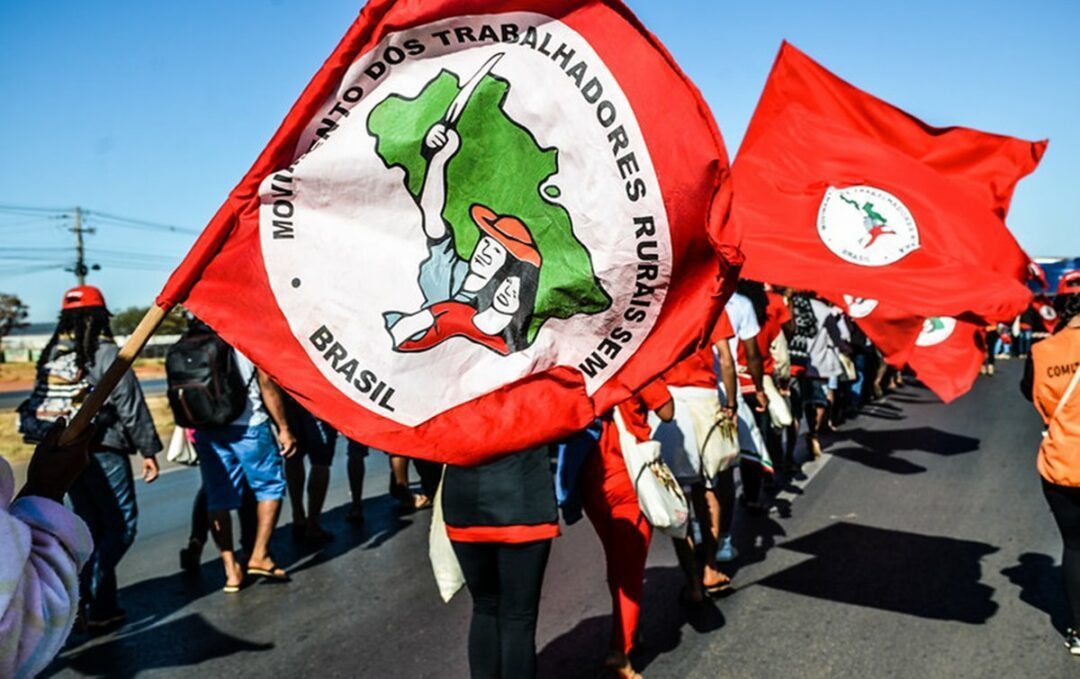
The MST land reform movement in Brazil has been going on since the 1980s, their goal?
-> To fight for land reform
The MST land reform movement is really important because they are fighting for a social system change, but using environmentally friendly methods. They take up land (squatting) and create a self sustaining life on the land they occupy. They create food for themselves and bring back biodiversity to a very bland area, a monoculture.
About the movement
This movement is a fight for a change in the system. The movement is fighting so that there one day will be a change enacted that follows what the law says should be happening. The law declares that the land would be given to the people, but the truth is far from it. They want land reform so that everyone can have land to live on and work for themselves. If the land was not in the hands of very few owners, the land would be able to be used in a safe and ecological way.

The movement is deemed anti-extractivist by Kroger for many reasons. First, the way they fight for land reform is anti-extractivist because they bring back soil health and introduce future life possibilities to the area. They use their knowledge of the area to bring back biodiversity and increase life forms on a barren area. In addition, they are challenging the status quo of the extractivist mindset because they are redistributing the land to formerly landless peasants. This may inspire more people to take action against the extractivist society we live in today. In both of their actions, they are going against the monoculture system and bringing positive change to an area where negative change has become the norm.


Going forward how can we use this?
This movement is proof that the divide between humans and nature can be mended. If people are fighting in Brazil for land reform and social change, people across the world can be too. The fight has been working and land reform change is slowing happening as the MST works to slowly bring land to the landless peasants. The social change that the MST is leading is a first step towards having a world where humans interact with nature in an ecological way, not an economic way. The mending process between humans and nature will be long, but with first steps already in motion, it is possible that humans can reconnect with nature and have an ecological view of the world.
Indigenous People have already have culture that revolves around having a positive relationship with the environment. By utilizing their history, knowledge, and ways of living, people from other cultures can start to heal their relationship with the environment. Rather than destroying their communities, we should be aspiring to be like them and care for the planet, not just extract from it. Pablo Neruda describes the, “indians collapsed, buried in the morning mist”. The devastation from the capitalist societies as a whole cause utter devastation on some of the few cultures that maintain our environment. Killing these people kills not only the culture, but the history and long knowledge of the land. Agroecology aims to bring that knowledge back into farming to provide an alternative to monocultures.